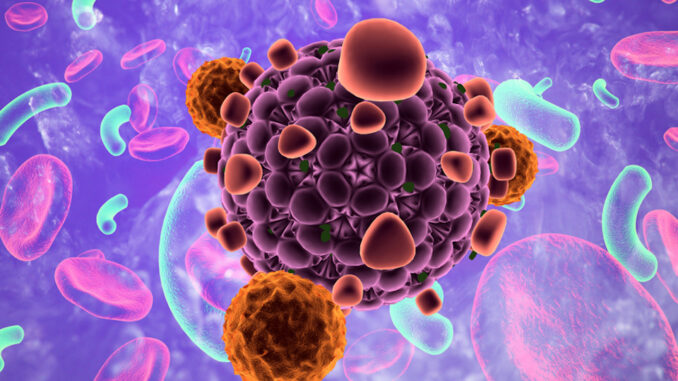
MyBiotics Pharma Ltd., a microbiome therapeutics company, and Hadasit Medical Research Services and Development Ltd., the technology transfer office of Hadassah Medical Center, announced today that they have entered into a research collaboration and licensing agreement for the identification of microbiome-based therapeutics that will enhance the response to and reduce adverse effects of anti-PD-1 and anti-PD-L1 in melanoma patients.
The collaboration will combine Hadassah’s knowhow and expertise in immunotherapy treatment of melanoma patients with MyBiotics’ proprietary microbiome technologies enabling development of novel therapeutics. The two-year joint research project will be conducted by researchers from MyBiotics together with a team of researchers at Hadassah Cancer Research Institute headed by Prof. Michal Lotem, MD., Head of the Center for Melanoma and Cancer Immunotherapy, Department of Oncology at Hadassah Medical Center. It will be funded by MyBiotics, which has an exclusive license for all data and inventions stemming from the collaboration.
The research is aimed at assessing the composition of the gut microbiome and secondary metabolites (organic compounds produced by the gut bacteria) in up to 100 melanoma patients treated with PD-1/PD-L1 checkpoint inhibitors, some of which already exhibited long-term response to the treatment. Stool and blood samples will be collected at various time points along the treatment, for the purpose of identifying microbiome components that promote treatment success.
“Recent research supports the important role played by the microbiome in promoting the success of cancer immunotherapies, and points to the possibility of influencing the composition of the microbiome as an adjunct treatment,”
stated David Daboush, CEO of MyBiotics Pharma.
“In this collaboration with Hadassah we will leverage Mybiotics’ SuperDonor whole microbiome recovery technology in combination with the MyLiveIn computational and predictive tools to advance research in order to unravel new layers of understanding and findings that will enable the design of effective microbiome-based therapeutics.”
“We look forward to the joint research with the team at Hadassah Cancer Research Institute, who bring excellent clinical capabilities combined with innovative thinking and expect this will be a significant partnership that will lead to better treatment options for oncology patients within the next few years,”
Daboush added.
“For years I have strived to study what was driving long-term survival of melanoma patients who did well beyond expectations,”
stated Prof Michal Lotem, and added,
“This collaboration gives us advanced molecular and genomic tools to analyze treatment success. After years of studying how cancer deceives us, I cannot wait to translate lessons of the past to therapies of the future.”
“This collaboration is an excellent example of the kind of partnerships we strive to create between medical companies and hospital-based research centers. I trust that the unique combination of scientific excellence and clinical expertise will work for the benefit of patients in Israel and worldwide”,
stated Dr. Tamar Raz, the CEO of Hadasit.
MyBiotics has developed breakthrough and robust culturing, fermentation and delivery technologies for generating a highly stable and diverse bacterial community that can be efficiently delivered to the gut and can reliably restore microbiome equilibrium. These technologies are effective for single microbes, complex microbial consortia and whole microbiome products, and are integrated with a computational AI platform which enables the design of unique microbial consortia and whole microbiome profiles. The technologies are highly potent and suitable for patients with microbiome-related medical conditions or for those who use antibiotics. Preclinical studies have shown that MyBiotics’ products deliver enhanced durability in various gastrointestinal and manufacturing conditions, enable targeted release in different gastrointestinal locations and exhibit robust colonization in the gut.
About the Microbiome and Cancer Immunotherapy
In the last 5 years, studies elucidating the possible contribution of the microbiome to cancer development and response to treatments has been at the forefront of scientific research. Findings have shown, for example, that broad-spectrum antibiotics can reduce the efficiency of checkpoint inhibitors. In addition, studies have pointed to differences between microbiomes of patients responding to immunotherapy and those who do not respond to treatment. In animal models, tweaking the microbiome or adding secondary metabolites thereof, influenced the efficiency of cancer immunotherapy. These findings and others support the potential of changing the microbiome composition as a tool for improving the efficacy and reducing the toxicity of checkpoint inhibitor immunotherapy in cancer patients.

